Are you navigating the sometimes tricky waters of contract termination? Whether it's due to changing circumstances or unmet obligations, knowing how to draft a termination letter is crucial for maintaining professionalism. In this article, we'll unravel the essential components of a contract termination letter, ensuring you effectively communicate your intentions while adhering to legal norms. So, grab a cup of coffee and let's dive into the details together!

Clear Identification of Parties
A termination of contract agreement involves a formal notification process where the parties involved, known as the "contracting parties," officially identify themselves and their roles in the agreement. It typically includes the full legal names of both parties along with their addresses, ensuring clarity and proper identification. For instance, if Company XYZ, situated at 123 Business Lane, Cityville, is the first party, and Individual ABC, residing at 456 Residential Avenue, Townsville, is the second party, their details should be explicitly mentioned to avoid any confusion or legal issues. Additionally, reference to the original contract's date and title can help establish the context of the termination.
Precise Termination Date
The termination of a contractual agreement requires precision to avoid misunderstandings. A precise termination date, often explicitly stated in the contract, serves as the final date when obligations cease. For instance, a fixed term contract may specify termination on December 31, 2023, ensuring both parties are aware of the end of their commitments. It is crucial that all terms regarding the termination process are followed according to the relevant clauses, including any notice periods or conditions outlined. Failure to adhere to these stipulations can lead to disputes or extension of obligations inadvertently.
Grounds for Termination
Terminating a contract agreement occurs when one party ends the legally binding document due to specific grounds outlined within the terms. Common grounds for termination include breaches of contract, such as the failure to deliver services (for instance, unfulfilled service agreements dating back more than 30 days) or failure to provide payment (such as invoices unpaid for over 60 days). Other valid reasons involve mutual consent, significant changes in circumstances (like bankruptcy filings or major policy shifts affecting the contract), or non-compliance with legal regulations (for example, violations of industry standards set by the Federal Trade Commission). Each of these grounds ensures that termination occurs within legal parameters, providing protection for all parties involved.
Legal and Financial Obligations
The termination of a contract agreement involves legal and financial obligations that require careful consideration. In the context of a lease agreement for commercial real estate, for instance, landlords and tenants must adhere to specific state laws, such as California Civil Code Section 1946, which outlines notice requirements for ending leases. Financial obligations include settling unpaid rent, which may amount to thousands of dollars, and liabilities for property damages, potentially costing up to $10,000 or more, depending on the extent of the damage. Additionally, both parties may need to review terms regarding security deposits, often equal to one month's rent, and any penalties stipulated in the contract for early termination. Legal counsel is often advised to ensure compliance with local statutes and to mitigate any potential litigation risks arising from the termination process.
Return of Property and Confidentiality
In the process of terminating a contract agreement, the return of property refers to the obligation to return any physical items, documents, or assets that were exchanged during the term of the agreement. This may include proprietary materials such as company laptops, office supplies, or confidential documents that were provided to facilitate the contractual obligations. Confidentiality clauses uphold the principle of protecting sensitive information, often extending even after the termination of the contract. Breaches of confidentiality can lead to legal consequences, especially if the information involves trade secrets or personal data. Adhering to these requirements is essential in maintaining professionalism and avoiding potential disputes following contract termination.

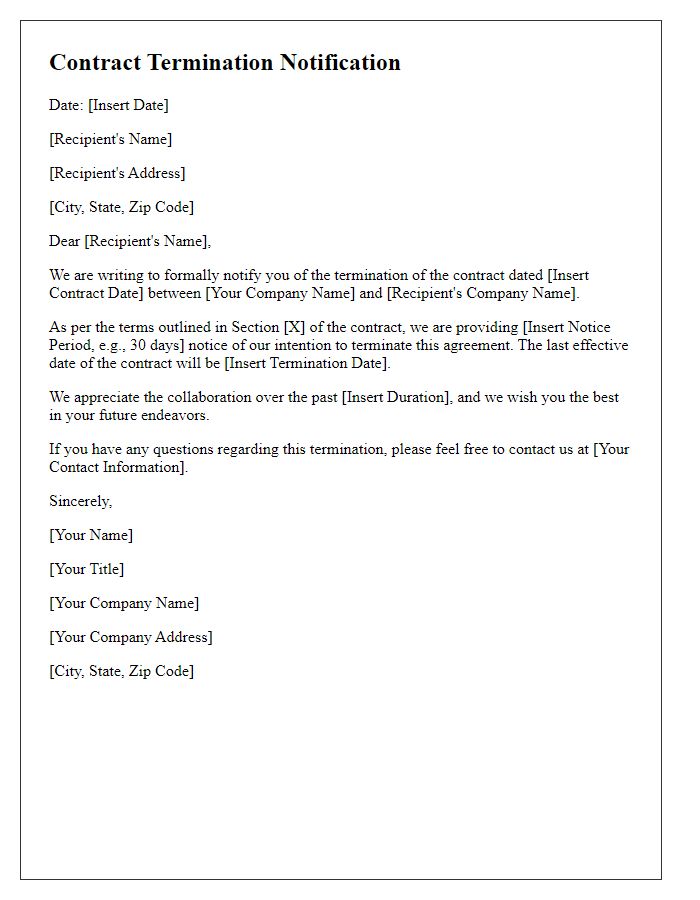
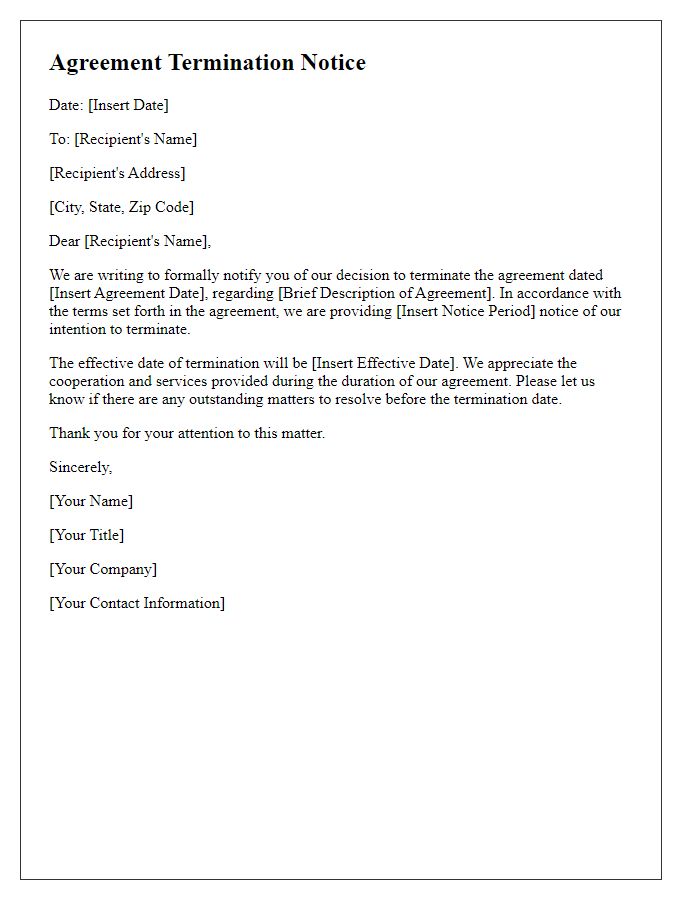


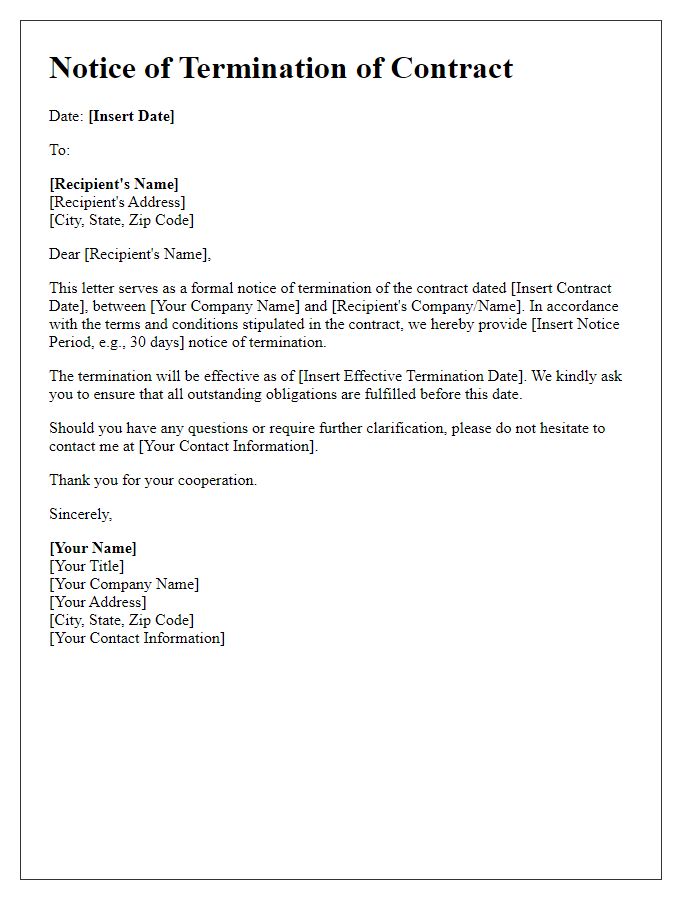
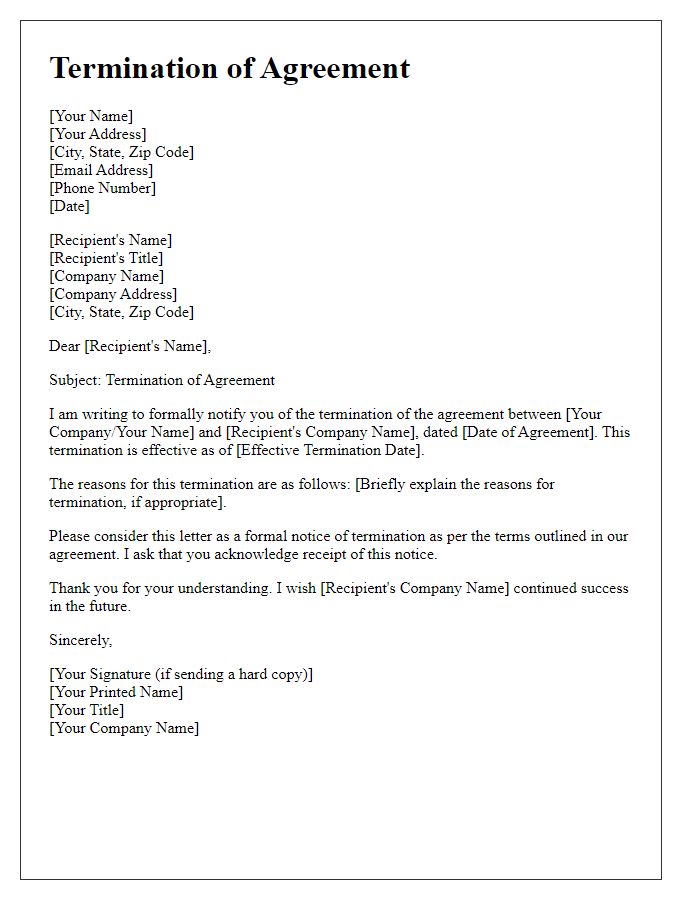
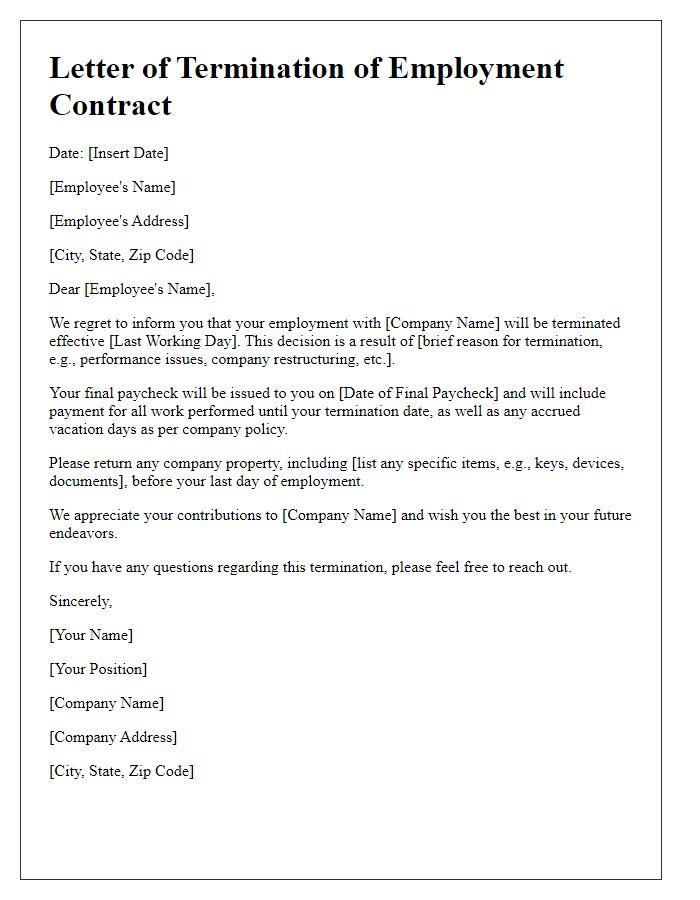

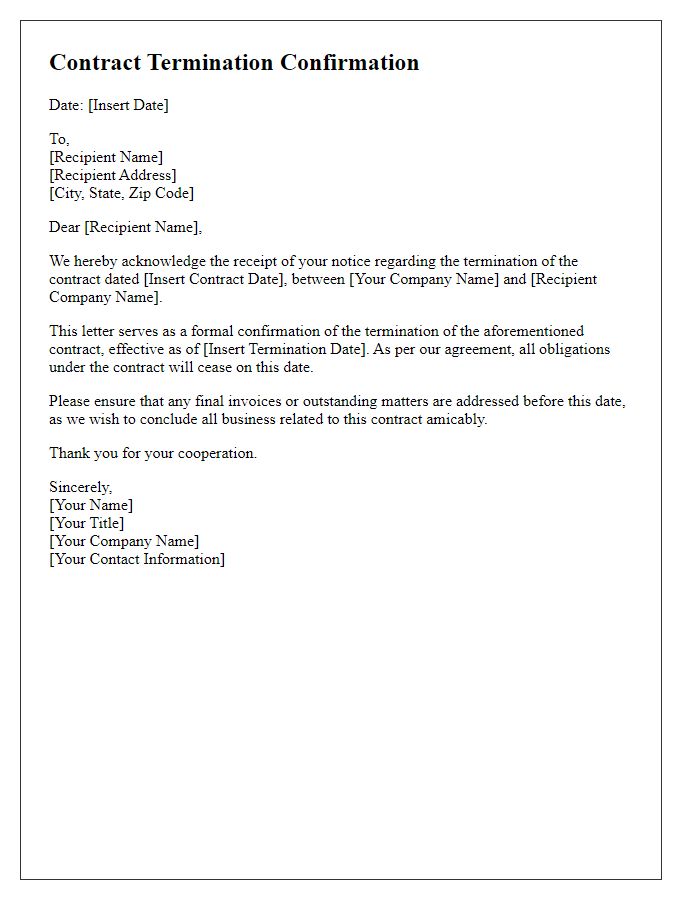
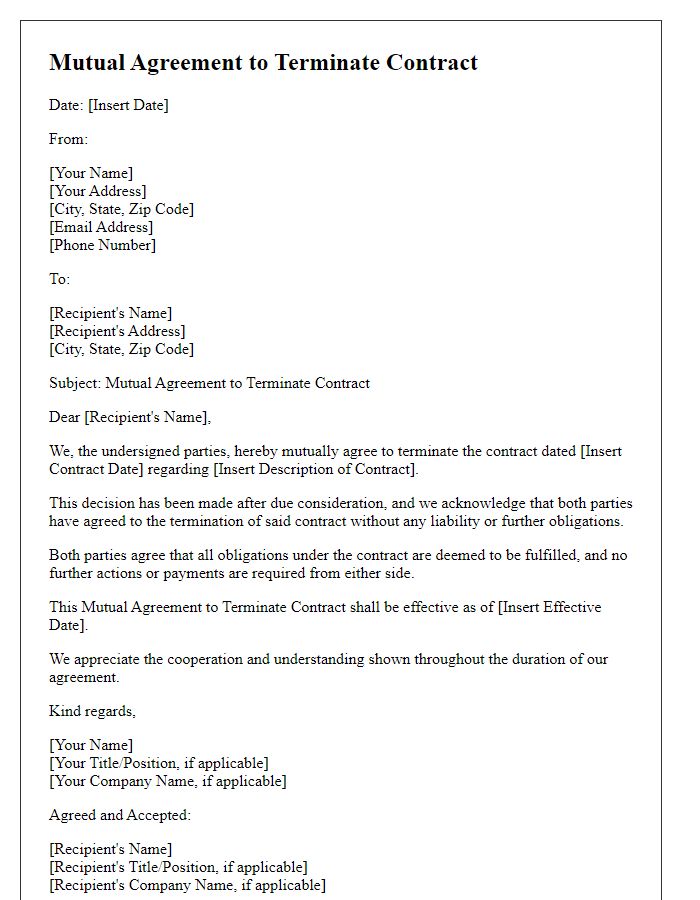


Comments